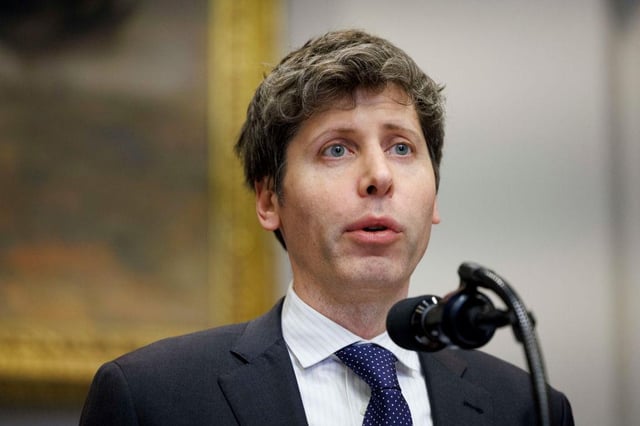Imagine pouring your heart out to a non-judgmental listener, someone always available, day or night. For over a million people each week, that listener is ChatGPT. A recent report from OpenAI reveals a staggering statistic: a massive number of individuals are turning to the AI chatbot to discuss suicidal thoughts and feelings. This raises profound questions about the role of AI in mental health, the ethical considerations for developers, and what this trend says about the state of our society.
The Scale of the Crisis: Millions Seeking Solace in AI
The sheer volume of individuals engaging with ChatGPT on the topic of suicide is a stark reminder of the mental health crisis gripping the world. While the exact nature of these conversations varies, the fact that so many people are choosing to confide in an AI suggests a significant gap in access to traditional support systems. Are people feeling unheard, unseen, or unable to connect with human resources? The numbers suggest a deep-seated need for accessible and immediate help.
It’s important to note that the report doesn’t specify the content of these conversations. Some users may be seeking information about suicide prevention, while others may be expressing active suicidal ideation. Regardless, the scale of the issue demands attention and a careful consideration of the implications.
Why ChatGPT? Accessibility and Anonymity
Several factors contribute to ChatGPT’s appeal as a confidant. Firstly, it’s accessible 24/7, unlike therapists or support hotlines that have limited hours. Secondly, the anonymity offered by an AI chatbot can be incredibly liberating for those struggling with shame or fear of judgment. The ability to express vulnerable thoughts without the perceived risk of social stigma can be a powerful incentive to reach out.
Moreover, for some, the lack of human emotion may be a benefit. They might find it easier to articulate their feelings to a neutral entity without worrying about burdening or upsetting another person. In essence, ChatGPT becomes a digital sounding board, offering a space for unfiltered expression.
The Double-Edged Sword: AI and Mental Health Support
While the accessibility and anonymity of ChatGPT offer potential benefits, it’s crucial to acknowledge the inherent limitations and potential risks. AI is not a substitute for professional mental health care. A chatbot can provide a listening ear and offer some basic information, but it lacks the empathy, nuanced understanding, and clinical expertise of a trained therapist.
OpenAI acknowledges these limitations and has implemented safeguards, such as directing users experiencing suicidal thoughts to crisis resources. However, the effectiveness of these measures remains a subject of ongoing debate. Can an AI truly assess the severity of a user’s situation and provide appropriate support? Is there a risk of providing inaccurate or even harmful information?
Ethical Considerations for AI Developers
The rise of AI in mental health raises profound ethical questions for developers. How do we ensure that these technologies are used responsibly and ethically? What are the liabilities if an AI provides inadequate or harmful advice? These are complex issues that require careful consideration and open dialogue between AI experts, mental health professionals, and policymakers.
Furthermore, the data collected from these conversations raises privacy concerns. How is this sensitive information being stored and used? What measures are in place to protect user anonymity and prevent data breaches? Transparency and accountability are essential to building trust and ensuring the ethical use of AI in mental health.
A Reflection of Society: Addressing the Root Causes
The fact that over a million people are turning to ChatGPT for support highlights a broader societal issue: the unmet need for mental health services. Long wait times, high costs, and social stigma often prevent individuals from seeking help. The accessibility of AI chatbots offers a temporary solution, but it’s crucial to address the underlying causes of the mental health crisis.
We need to invest in expanding access to affordable and effective mental health care, reducing stigma, and promoting early intervention. This requires a multi-faceted approach involving governments, healthcare providers, educators, and community organizations. Technology can play a role, but it’s only one piece of the puzzle.
Ultimately, the reliance on AI for mental health support serves as a wake-up call. It’s a reminder that we need to prioritize mental well-being and create a society where everyone has access to the resources they need to thrive.
Moving Forward: Hope and Caution
The intersection of AI and mental health is a rapidly evolving landscape. While the reliance on ChatGPT for suicide-related conversations is concerning, it also presents an opportunity to leverage technology for good. AI has the potential to augment existing mental health services, provide early intervention, and reach underserved populations.
However, we must proceed with caution and prioritize ethical considerations. Transparency, accountability, and collaboration are essential to ensuring that AI is used responsibly and effectively. By working together, we can harness the power of technology to improve mental health outcomes and create a more compassionate and supportive society. Ignoring the million voices reaching out is simply not an option.
